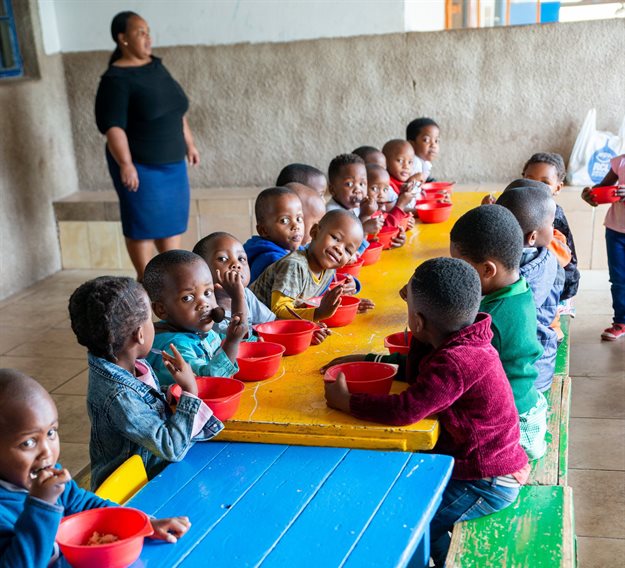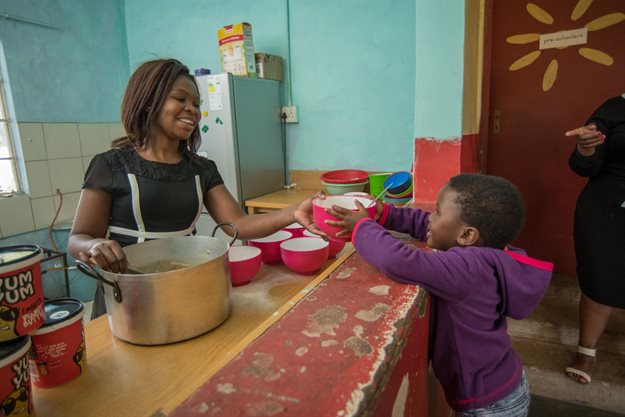While the lockdown regulations have eased, the hunger pandemic in South Africa continues to grow, according to Do More Foundation executive and trustee Warren Farrer, due to increased job losses and rising cases of malnutrition among SA's most vulnerable group - young children.

Young children enjoying a healthy snack at their ECD Centre in a KZN community.
The foundation has been working tirelessly to ensure the vulnerable children of South Africa are not left behind, he says: “Together with 147 partners from the private, public and NGO sector, we have been able to provide over 7.4 million meals to vulnerable children and their families across all nine provinces.”
Ambitious goal
Working together to find a longer-term solution to South Africa’s growing hunger pandemic, the Do More Foundation has set an ambitious goal leading up to World Food Day 2020 on 16 October.
Farrer says that the NPO aims to secure nutritional meals for 20,000 vulnerable young children every school day for the next 20 months. “Through the production of a highly fortified Do More sorghum porridge, provided by our founder RCL Foods, we are able to provide a nutritious meal to a young child at their ECD centres every school day for an entire month for as little as R20.”

A passionate ECD centre principal preparing porridge for her students pre-Covid-19.
Farrer explains how R20 a month will make a difference:
1. Currently, 2.5 million young children in South Africa are living below the food poverty line. This means that there is not enough money in the household to cover even basic nutritional needs. And, as we know, no child can learn on an empty stomach. By providing a daily meal you are giving a child the energy to learn every school day for 20 months.
2. Early childhood is the most vital phase of human development, with 90% of brain growth taking place before the age of five. Without adequate nutrition and early stimulation during these fundamental years, children are unable to develop as they should, which can have a serious impact on their future health and economic prospects. Unfortunately, this is already the case for 27% of young children in SA who are stunted which means we are writing off a third of our child population before the age of five years old. Your monthly contribution will not only provide young children with the nutrition they need but also play a key role in stopping the spread of stunting in our vulnerable communities.
3. Finally, 68% of early childhood development operators have reported that caregivers have stopped paying fees after the nationwide closure on 18 March. This is because these programmes primarily serve poor and vulnerable communities whose household incomes have been severely constrained by the crisis. Providing food to young children at these centres is a massive incentive for parents to send their children back to school.
“The fight against hunger is just beginning and what better way to celebrate World Food Day than to dedicate the next 20 months to ensuring 20,000 children receive the nutrition they need to thrive? In the true spirit of ubuntu, we need to rally together to ensure our children are not left behind. For as little as R20 a month you can sponsor one of these children a meal a day and help us create a better tomorrow. Together we can #DoMore,” Farrer concludes.
Click here to make a donation.







































